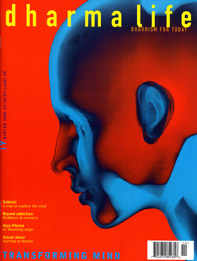Blue Poppies
Jonathan Falla
11/9, 2001
$15/£9.99 p/b
Blue Poppies, a novel set in Tibet in 1950, tells of the love-affair between a crippled Tibetan widow, Puton, and a young Scottish radio operator, Jamie Wilson. With its backdrop of the Chinese invasion of Tibet in 1950, this book smacks of authenticity from outset. Falla is alive to texture, colour, smell and sound. From the scent of rancid butter to the precise feel of a yak's tongue, the world he evokes is almost entirely convincing.
When the Communist army arrives to 'liberate' the village of Jyeko, it is a model of military decorum, but as the book progresses things turn sour. Some Communist troops are murdered. A goatherd is humiliated, tortured and killed in the village square. The villagers exact their revenge at a ping-pong match held in the monastery (even the absurdity of the strange juxtapositions rings true), with a savage massacre of the Chinese forces. This sets the entire village on the road to exile, with Jamie acting as their guide through the wilderness.
It's in the characterisation of Jamie, the radio operator from Inverkeithing in Scotland, that Blue Poppies seems to fall down. Part Moses, part Christ, he is a bizarre figure - the star of his sainthood burning ever brighter as the book progresses. The Scotsman's exaltation is completed with a peculiar reference to the Gospels when, in the wake of the slaughter of a Chinese patrol by the exiled villagers, he rides off on a yak in tears, saying: 'Jesus wept'. And even though the people of Jyeko do not reach the Promised Land by the end of the book, I baulked at Jamie's sanctity. He reminded me of one of those heroes in colonial adventure yarns where a single white man brings liberation to a horde of benighted savages.
Despite such misgivings, this is an exciting and moving book. Rather remarkably, Falla himself has never been to Tibet. That he can conjure up the world of the Tibetan plateau so convincingly is a testament to his powers of imagination; it is also testament to the way in which a story, told with passion and conviction, can bear more truth and meaning than any amount of careful research. At least it might be; I cannot be sure. After all, I have never been to Tibet either.
Will Buckingham



